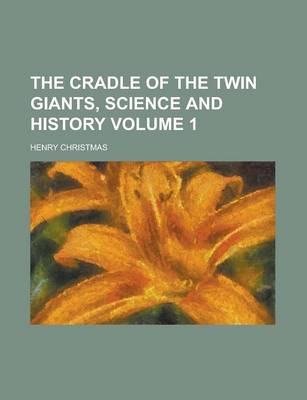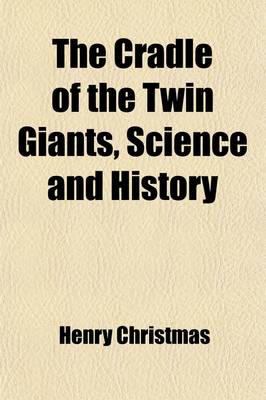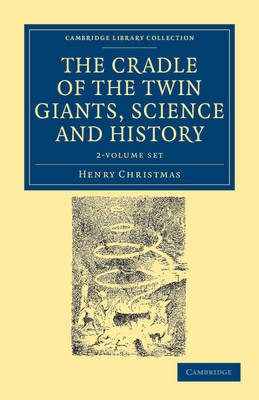Cambridge Library Collection - Spiritualism and Esoteric Knowledge
2 primary works • 3 total works
Volume 1
The Cradle of the Twin Giants, Science and History Volume 1
by Henry Christmas
Published 15 December 2011
Henry Christmas (1811-68) was a scholar of very wide interests and a fellow of both the Royal Society and the Society of Antiquaries. He wrote extensively about many subjects including philosophy, religion, literature, mythology and numismatics. He was educated at St John's College, Cambridge, and soon afterwards became the librarian and secretary of Sion College. Between 1840 and 1860 he edited a number of books and journals, including The Literary Gazette. He also translated Calmet's Phantom World, and Wieland's Republic of Fools into English. Published in 1849, this two-volume set examines how popular mythology kept alive beliefs about the occult, alchemy and the paranormal. In Volume 1, the author looks at astrology, dream-interpretation, magic and fantastical automata. He shows how some of these beliefs were so entrenched in tradition and culture that they came to be regarded almost as fact, and so had a detrimental influence on rational thought.
Volume 2
The Cradle of the Twin Giants, Science and History (Volume 2)
by Henry Christmas
Published 3 January 2010
Henry Christmas (1811-68) was a scholar of very wide interests and a fellow of both the Royal Society and the Society of Antiquaries. He wrote extensively about many subjects including philosophy, religion, literature, mythology and numismatics. He was educated at St John's College, Cambridge, and soon afterwards became the librarian and secretary of Sion College. Between 1840 and 1860 he edited a number of books and journals, including The Literary Gazette. He also translated Calmet's Phantom World, and Wieland's Republic of Fools into English. Published in 1849, this two-volume set examines how popular mythology kept alive beliefs about the occult, alchemy and the paranormal. Volume 2 considers witchcraft, mesmerism, fairy mythology, alchemy and ghosts, and shows how some of these beliefs were so entrenched that they came to be regarded almost as fact, and so influenced rational thought. The volume concludes with comparison of superstitious beliefs with factual knowledge.
The Cradle of the Twin Giants, Science and History 2 Volume Set
by Henry Christmas
Published 15 December 2011
Henry Christmas (1811-68) was a scholar of very wide interests and a fellow of both the Royal Society and the Society of Antiquaries. He wrote extensively about many subjects including philosophy, religion, literature, mythology and numismatics. He was educated at St John's College, Cambridge, and soon afterwards became the librarian and secretary of Sion College. Between 1840 and 1860 he edited a number of books and journals, including The Literary Gazette. He also translated Calmet's Phantom World, and Wieland's Republic of Fools into English. Published in 1849, this two-volume set examines how popular mythology kept alive beliefs about the occult, alchemy and the paranormal. Volume 1 looks at astrology, dream-interpretation, magic and fantastical automata. Volume 2 considers witchcraft, mesmerism, fairy mythology, alchemy and ghosts. The work shows how elements of these beliefs came to be regarded as fact, and so influenced rational thinking.


